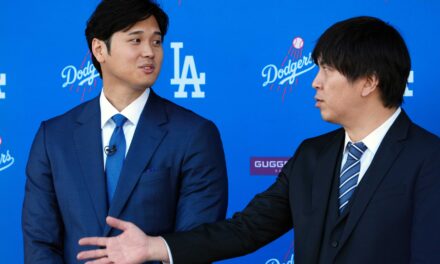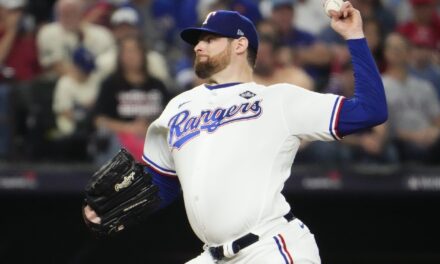
Spring training games start in less than 40 days. While that’s always welcome news for baseball fans, this year, exhibition games from Florida and Arizona will be a little different. For the first time, fans will see, on the major league level, pitch clocks, shift restrictions, and limits on the number of times a pitcher can attempt a pickoff.
For context, the Major League Baseball Players’ Association opposed both the pitch clock and shift restriction rule changes. The players had representation on the MLB Competition Committee, created as part of the Collective Bargaining Agreement finalized last March. However, ultimately MLB had the right to implement new rules as they deemed appropriate. Naturally, the MLBPA is not pleased that the rules to which they objected were implemented, and the players are raising concerns about the use of one rule in particular, the pitch clock, in the postseason.
In an article by Evan Drellich in The Athletic, agent Scott Boras provides the following rationale for why the pitch clock should be jettisoned for the playoffs.
“In the postseason, we don’t want these men in a completely different emotional environment, where the settings mean so much more, where all their work and effort, all their goals are achieved. And at this level, we want them to have the appropriate time, both pitchers and position players, to evaluate and move forward in the most prepared and directed way.”
In one way, that makes sense. The games are more important, so why not let both pitchers and batters take the time they need? However, regardless of how one may feel about the pitch clock, changing the rules for the postseason is also suspect. Why play 162 games per team under one set of rules, then change the rules?
Those who support eliminating the pitch clock in the postseason say it would be a travesty if a game were to be decided on a technicality, such as the pitcher taking too much time between pitches or the batter not being in the box within the prescribed timeframe. This is true. However, Theo Epstein, a special consultant to the commissioner, addressed this potential situation in the above-cited article.
“There are a lot of safeguards built into the rules to make sure that games aren’t decided in a late-and-close situation by a pitch-timer violation,” Epstein said. “Every hitter has a timeout each and every plate appearance, where if the game is going too fast, you need a little bit more time, you can simply call timeout, and gather your thoughts and reset the timer that way.
“When there are runners on base, every pitcher can step off twice per plate appearance with impunity, and reset the clock and gather your thoughts and move forward. And then you get two more if a runner advances.
“There are five mound visits throughout the course of the game. You’re guaranteed to have one in the ninth inning and one in each extra inning that can be used to stop the clock — come together, gather thoughts and move forward. And then there are also, thanks to player input, there’s now some some discretion with umpires under certain special circumstances, where umpires can afford the players more time to avoid a situation where it’s inappropriate to have the clock dictate a ball or strike or decide a game.”
The batter’s “timeout” Epstein cites is a twist. It will be interesting to see that implemented. It’s also interesting that mound visits can be used to “stop the clock”, and that there will be guaranteed mound visits in the ninth and any extra innings. The last sentence of Epstein’s quote is very thought-provoking, and maybe a little concerning. We don’t want games ending on technicalities, that’s fair. But now, umpires will have discretion under certain special circumstances where players will be afforded more time? What does that mean? Which circumstances, and how much discretion?
MLB is trying to give fans what fans say they want; a quicker pace of play, more balls in play, more running, and faster games. It’s doubtful that fans want to see an umpire’s discretion in a special circumstance change something in an important game. Of course, we will have to see exactly how these new rules play out all season, and how they work in the postseason. This all could be for the better. The product may prove to be more entertaining, and the game’s revenues may grow over time. Or, a postseason series could turn on an umpire’s discretion. That does not seem like it will end well.
All of this could have been avoided if there were no rule changes (the DH in both leagues was enough change for many). That’s a story for another day. For now, it’s a new ballgame. It starts (at least exhibition games do) in a little over a month. New rules or not, that’s music to the ears of baseball fans everywhere.















